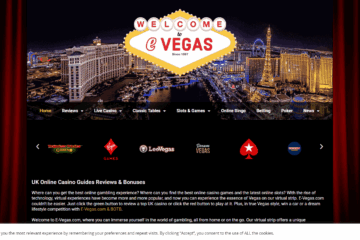
Inside Sky’s Gambling Legacy: How Sky Bet Became a Betting Giant
Sky Group, a longstanding leader in European media and telecommunications, has undergone significant transformation over the last three decades. Originally a satellite television pioneer in the United Kingdom, Sky has since evolved into a continental force spanning television, broadband, and digital services. While most commonly associated with premium television, particularly live sports, Sky’s less widely known but increasingly relevant involvement in online gambling and casino gaming has become an area of strategic interest and public scrutiny. This development reflects broader shifts in the media and entertainment industries, where the boundaries between content, technology, and wagering continue to blur.
Sky’s involvement in the gambling sector is largely commercial and brand-based rather than operational. The company originally entered this space through the establishment of Sky Betting & Gaming, a digital gambling arm that operated under the same branding as the parent broadcaster. Over time, Sky Betting & Gaming expanded rapidly, launching successful products such as Sky Bet, Sky Casino, Sky Poker, and Sky Vegas. These services were tightly integrated with Sky Sports programming and digital platforms, making them uniquely positioned to leverage viewer engagement in real time. Football matches, horse racing, darts, and cricket events became natural touchpoints for promoting odds, bets, and exclusive gaming offers. The Sky brand gave the gambling services instant credibility, and the technological synergy between Sky’s media platforms and gambling offerings created a seamless user experience.
Although Sky sold the majority of its stake in Sky Betting & Gaming in 2014 to private equity firm CVC Capital Partners, it retained a licensing agreement that allowed the gaming operations to continue using the Sky name. This strategic move allowed Sky to retain the commercial upside of a rapidly growing gambling segment while avoiding the full regulatory burden and reputational risks of being a direct operator. In 2018, CVC sold its majority stake in the business to The Stars Group, which was later acquired by Flutter Entertainment, one of the world’s largest gambling conglomerates. Flutter now owns the Sky-branded betting and casino services, but they continue to operate under the Sky name with permission from the parent company, now a subsidiary of Comcast.
Sky’s role in the gambling landscape has not been without controversy. Despite no longer operating the gambling business directly, the ongoing use of the Sky brand has led many consumers to associate the broadcaster with gaming activities. This association has raised questions among regulators, advocacy groups, and policymakers about how media and gambling industries should coexist. The presence of Sky-branded odds, promotions, and casino offers during live sporting broadcasts has been criticized by public health organizations concerned about the normalization of gambling, especially among younger and vulnerable viewers.
In recent years, Sky Betting & Gaming has faced regulatory scrutiny over data privacy practices and marketing ethics. There have been several high-profile cases involving the targeting of self-excluded or problem gamblers with promotional messages, leading to fines and reputational damage. Although Flutter owns and operates the business, the continued use of the Sky brand means public backlash often circles back to the original broadcaster. For Sky, this represents a delicate balance: the brand equity it built over decades is now being leveraged by a partner in a highly scrutinized industry.
The strategic implications of Sky’s ongoing relationship with gambling are complex. On one hand, gambling remains one of the most profitable digital consumer markets, and the integration of gaming within the media ecosystem aligns with broader industry trends. On the other hand, increasing regulation and ethical scrutiny could make this association more problematic over time. Sky has remained cautious about expanding its involvement in this space, opting not to reintegrate gambling operations under its corporate umbrella, even as other media entities experiment with deeper integrations.
Looking at the competitive landscape, other companies with media roots are beginning to explore gambling more directly. ESPN, owned by Disney, has shown a growing interest in the sports betting market, recently launching ESPN Bet through a licensing partnership with PENN Entertainment. While Disney’s brand has traditionally been family-oriented, it has shown a willingness to segment its content and explore high-growth opportunities in adult-focused sectors. Robinhood, primarily known as a stock trading platform, is another potential entrant. It already uses gamified interfaces and has a young user base accustomed to high-stakes digital decision-making. Analysts speculate that the company could pivot into fantasy sports or peer-to-peer gaming, especially as financial and gaming technologies continue to converge.
What sets Sky apart from these other potential entrants is its deep integration into the European sports media ecosystem. Sky holds premium broadcasting rights for top-tier leagues, including the English Premier League, Formula One, and international cricket. The real-time engagement generated by these broadcasts makes them ideal for second-screen experiences, including live betting and interactive gaming. Sky’s ability to shape the context in which sports are consumed gives it unique leverage, which is why the gambling industry remains eager to maintain licensing agreements and advertising partnerships with the brand.
Sky’s future in the gambling space may not involve direct operation, but its influence will remain significant. The Sky name carries weight, trust, and cultural capital, particularly in the UK and Ireland. Whether through advertising partnerships, interactive content, or data-driven personalization, Sky is well positioned to continue serving as a crucial conduit between live entertainment and online gaming. The challenge will be managing this role responsibly in a shifting regulatory and ethical environment. Sky’s parent company, Comcast, will also have a say in the matter. As a global player with a more cautious approach to content regulation and brand management, Comcast may influence the extent to which Sky continues to license its brand to gambling entities in the future.
In summary, Sky Group’s involvement in the gambling industry reflects a broader evolution in how media companies monetize engagement and extend brand influence. By partnering with gambling operators through licensing and integrated advertising, Sky has maintained a presence in a high-margin business without becoming operationally entangled. As the market matures and regulations tighten, the company’s decisions in this domain will remain under the microscope. How Sky navigates this intersection between entertainment and gaming will shape not only its own brand but also the broader expectations for how media and gambling can responsibly coexist in the digital age.
- What is Sky’s connection to gambling?
Sky licenses its brand to Sky Betting & Gaming, which operates popular gambling services like Sky Bet and Sky Casino. These are now owned by Flutter Entertainment.
2. Does Sky directly operate any gambling platforms?
No. Sky sold most of its stake in Sky Betting & Gaming in 2014 and no longer operates gambling services directly.
3. Who owns Sky Betting & Gaming now?
Sky Betting & Gaming is owned by Flutter Entertainment, which also owns Betfair, Paddy Power, and FanDuel.
4. Why do gambling services still use the Sky name?
Flutter operates Sky-branded betting platforms under a licensing agreement with Sky Group, allowing continued use of the name.
5. Is Sky responsible for marketing decisions made by Sky Bet?
No. Flutter manages marketing, promotions, and data for Sky Betting & Gaming, though the Sky name is still prominently used.
6. Has Sky faced backlash for its brand being associated with gambling?
Yes. Regulatory scrutiny and public concern have increased due to the visible presence of Sky-branded gambling ads during sports broadcasts.
7. What happened with Sky and the gambler court case in 2025?
A court ruled that Sky Bet unlawfully targeted a compulsive gambler. While Sky Group was not directly involved, the brand association drew attention.
8. Is Sky planning to re-enter the gambling industry directly?
There are no public plans for Sky to return as a gambling operator, especially with increasing regulatory pressure in the UK and EU.
9. How does Sky benefit from the gambling industry today?
Sky benefits through licensing fees and strategic ad partnerships with Flutter’s Sky Betting & Gaming and other betting operators.
10. Has Sky collaborated with other betting brands?
Yes. In addition to Flutter, Sky Media has advertising partnerships with firms like Midnite, extending brand synergy across platforms.
11. Could Sky’s gambling involvement change in the future?
Possibly. Industry trends and regulations will shape whether Sky renews or limits its brand’s visibility in gambling spaces.
12. How does Sky compare to ESPN or other media companies in gambling?
Like ESPN with ESPN Bet, Sky has leveraged its media reach to support betting. However, Sky currently does this via brand licensing, not direct ownership.


